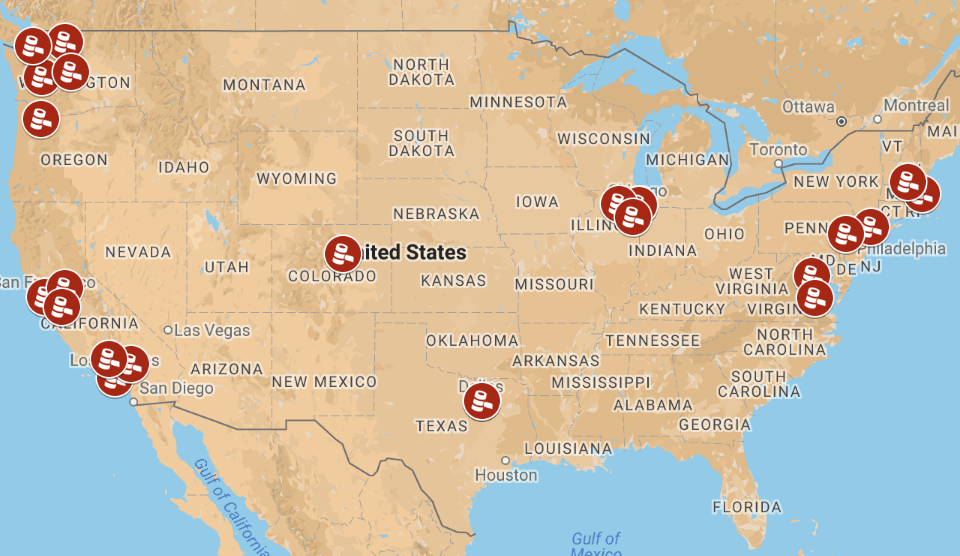Legal Challenges to Trump’s Immigration Policies [MAP, LAWSUITS]
Dozens of lawsuits have been filed challenging Trump’s executive order on immigration. Here they are.

Since President Trump issued his executive order on immigration and refugees, dozens of legal challenges have been filed in federal courts.
Some of the cases were withdrawn after the White House clarified the order or judges issued rulings, allowing people with green cards to enter the United States.
But many are progressing including the challenge from the States of Washington and Minnesota that caused a nationwide temporary stay against the president’s order.
Another is in Detroit where the Arab-American Civil Rights League filed suit last week along with several other plaintiffs. U.S. District Judge Victoria Roberts issued a temporary restraining order and scheduled a Feb. 13 hearing.
Using federal court records and media reports, WDET compiled an index of the cases.
Click on the icons on the map to learn more about the cases, the judges’ orders and the people involved.
Compiled with information from the Public Access to Court Electronic Records.
The Open Cases:
State of Washington and State of Minnesota vs. Donald Trump et al
This is the case that put the Jan. 27 executive order on hold.
Three days after President Trump issued the order, Washington’s attorney general filed to stop its enforcement. The first line of the complaint:
“The State of Washington (“State”) brings this action to protect the State – including its residents, its employers, and its educational institutions – against illegal actions of thee President and the federal government. The President’s Executive Order of January 27, 2017 (“the Executive Order”) is separating Washington families, harming thousands of Washington residents, damaging Washington’s economy, hurting Washington-based companies, and undermining Washington’s sovereign interest in remaining a welcoming place for immigrants and refugees.”
A few days later the State of Minnesota joined the case. The state is home to a large population from Somalia, one of the countries named in the order, which barred travelers from there.
On Friday, U.S. District Judge James Robart in Seattle granted the states’ request to suspend the travel ban making it legal for green card holders to enter the U.S. Here’s that order. Robart wrote:
“The work of the Judiciary, and this court, is limited to ensuring that the actions taken by the other two branches comport with our country’s laws, and more importantly, our Constitution. … The court concludes that the circumstances brought before it today are such that it must intervene to fulfill its constitutional role in our tripart government.”
On Saturday, the federal government requested a stay of the order, appealing the lower court’s order to the 9th Circuit Court of Appeals in Seattle. Here’s that order. Attorneys for the federal government wrote that the stay is:
“…imposing irreparable harm on the defendants and the general public. The injunction contravenes the constitutional separation of powers; harms the public by thwarting enforcement of an Executive Order issued by the nation’s elected representative responsible for immigration matters and foreign affairs; and second-guesses the President’s national security judgment about the quantum of risk posed by the admission of certain classes of aliens and the best means of minimizing that risk.”
The Appeals Court later on Saturday denied the immediate stay Trump had asked for. Here’s that order.
Then overnight Monday, attorneys for the states filed a 32-page brief describing the “chaos” created by the executive order. See it here.
The Trump administration has a 6 p.m. EST deadline Monday for a response.
